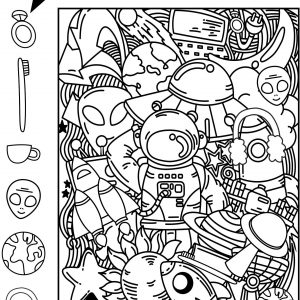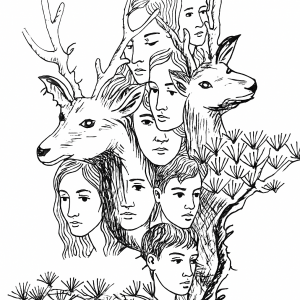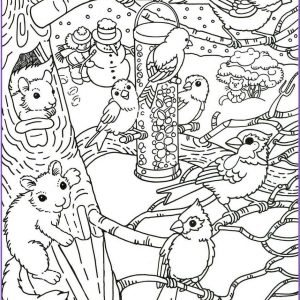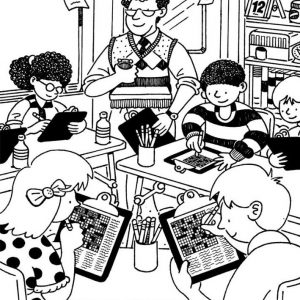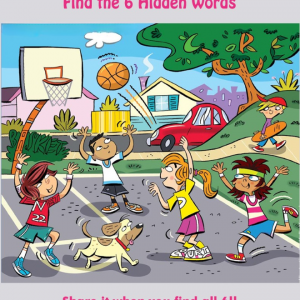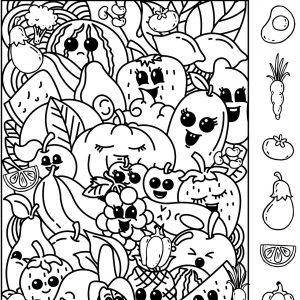A Toy Room Mystery: Discovering Hidden Objects in a Playful Adventure
Step inside a cheerful playroom filled with toys, laughter, and mystery! At first glance, this picture looks like a normal day in a child’s room — blocks on the floor, robots on the shelves, and a teddy bear sitting proudly in the center. But look closer. Hidden among the toys and shapes are secret surprises waiting to be found. This isn’t just an ordinary drawing — it’s a hidden object challenge that invites you to explore, observe, and think like a detective in the world of play.
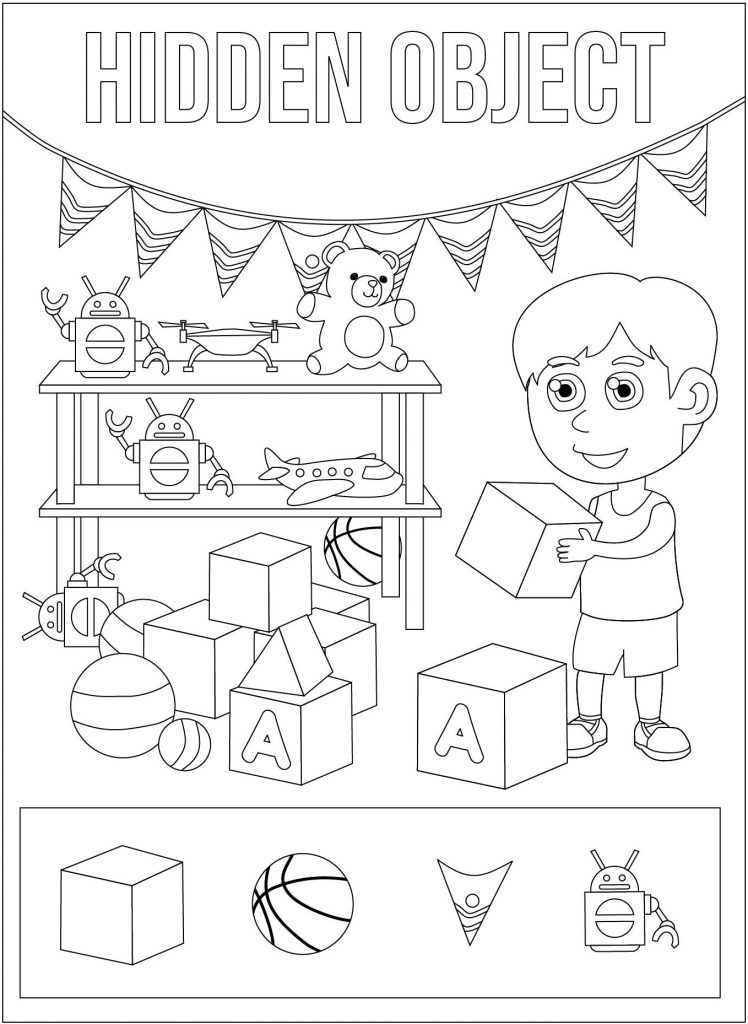
A Playroom Full of Surprises
The scene begins with a little boy, happily stacking colorful blocks. Around him, the room bursts with the energy of imagination — toy robots, airplanes, and bouncing balls fill the shelves and floor. Above, triangular flags hang like cheerful streamers, creating a festive atmosphere that draws you right in.
But don’t be fooled by its simplicity. Hidden within this innocent playroom are clever objects camouflaged among the toys. It’s a test of your attention to detail — a fun exercise for your brain disguised as a playful picture.
Can you find what’s hiding among the cubes, teddy bears, and toy planes? The thrill lies in noticing the unexpected — those little details that blend so perfectly into the scene that they almost escape your eye.
The Boy and His Block: The Heart of the Scene
The young boy in the picture captures the essence of curiosity. With bright eyes and a gentle smile, he holds a block in his hands, ready to build something new. His posture and expression radiate joy — that pure, creative spark children have when they play freely.
What makes him so special in this image isn’t just his role as the main character, but how he connects to everything around him. Every toy in the room seems to revolve around his energy. It’s almost as if his imagination brought them all to life — the robots guarding the shelves, the airplane ready for takeoff, and the teddy bear smiling as if it’s watching his next move.

The Shelves of Wonder: Where the Hidden Objects Begin
Take a closer look at the shelves. They’re not just storage — they’re treasure chests of hidden surprises.
On the top shelf, a teddy bear sits proudly, surrounded by toy robots. But have you noticed something unusual about the shapes? The toys seem to mimic each other’s forms — arms, antennas, and round heads blend together, making it tricky to tell where one toy ends and another begins. Somewhere between the gadgets and gears lies your first hidden object, cleverly disguised in plain sight.
On the bottom shelf, the toy airplane catches your eye. Its sleek design stands out, but don’t stop there. Hidden nearby might be something unexpected — maybe a small object cleverly tucked into its shadow or blended with the shelf’s edge. This part of the puzzle is all about patience and careful observation.
The Pile of Blocks: Shapes That Tell a Story
Now let’s focus on the pile of toy blocks scattered across the floor. Some are marked with the letter “A,” while others form neat stacks or lean playfully to the side. It might seem like a random jumble, but there’s a pattern hidden here — perhaps a secret symbol or object cleverly drawn within their lines.
Notice how the boy’s cube connects with the ones beside him, almost forming a path. It’s as if the blocks themselves are guiding you toward something — maybe the next clue or a hidden image you haven’t spotted yet. The way they stack creates angles and shadows that make your brain work harder, pushing you to look twice.

The Robot Army: Guardians of the Game
Let’s not forget the robots. These metallic friends are more than just decoration — they’re part of the challenge. Each one has unique details: different antennas, buttons, and arm positions. But somewhere among them hides something unexpected — perhaps a shape that doesn’t belong, or a secret twist in their design.
Hidden object puzzles often use repetition to trick the eye. When several similar items appear together, our brains tend to gloss over the differences. But in this picture, those differences might hold the key to what’s hidden. Look for something off — a missing part, an extra line, or a tiny pattern that feels “different.” That’s where your hidden surprise might be waiting.
The Playful Patterns: Flags, Balls, and Background Secrets
While your eyes are busy scanning the obvious — the toys, the shelves, and the blocks — the background holds its own secrets. The string of triangular flags hanging across the top adds charm, but it might also hide something sneaky. Perhaps a small object blends into the pattern of the flags, or one of them has an unusual shape.
Then there are the balls — round, cheerful, and scattered across the scene. Their curved lines can easily conceal other circular objects, like small buttons, coins, or even shapes that mimic the toys nearby. The challenge here is all about balance — your brain must separate the background from the objects without losing focus on the overall scene.

The Joy of Observation: Why Hidden Object Games Matter
At first, a hidden object puzzle like this seems like simple fun. But there’s more to it than meets the eye. These kinds of puzzles train your brain to focus, analyze patterns, and notice details you might otherwise overlook. They sharpen concentration and boost memory — all while offering a creative, relaxing escape.
For children, it’s an excellent way to develop cognitive and visual skills. For adults, it’s a nostalgic return to childhood curiosity — that feeling of discovery and satisfaction when you finally spot the object you’ve been searching for.
Think of it as mindfulness disguised as play. Every second spent scanning the image draws you deeper into the present moment.
A World Built from Imagination
This picture does more than challenge your eyes — it celebrates creativity. Every toy tells a story, every object connects to a child’s imagination. The room feels alive, like a snapshot of a young dreamer’s world.
The boy’s expression, the organized chaos of toys, and the banner waving above — they all work together to create an atmosphere of joy. It’s not just about finding hidden objects; it’s about rediscovering the magic of play itself.
The beauty of this illustration lies in its simplicity. It reminds us that wonder doesn’t need to be complex — sometimes it’s right there in front of us, hidden in plain sight among the building blocks of imagination.
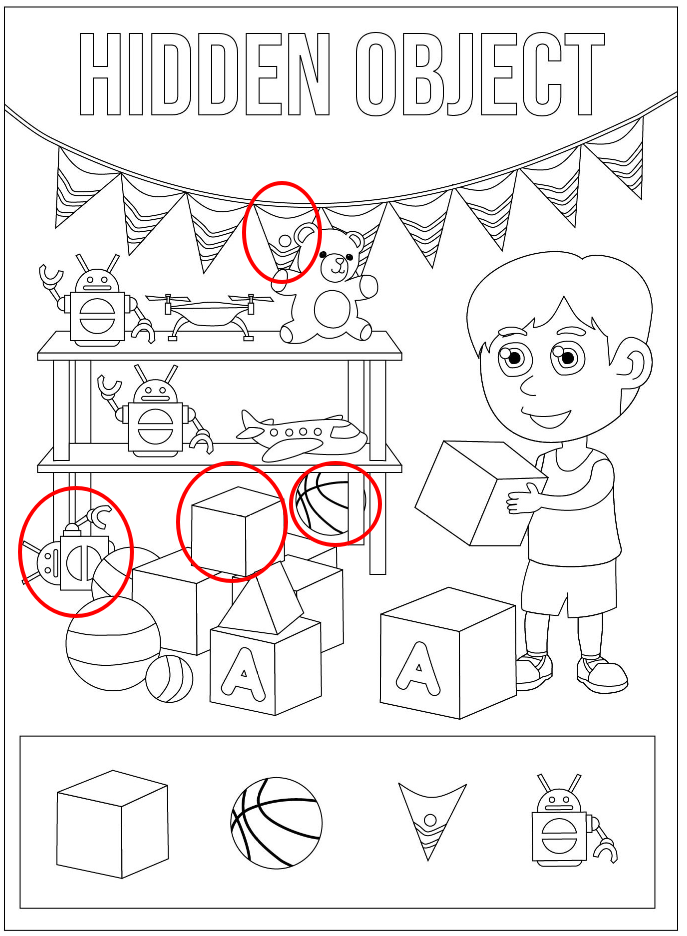
Conclusion: The Magic Behind Every Hidden Object
This delightful playroom puzzle invites you to see beyond the surface — to find the extraordinary in the ordinary. Each toy, each line, each shadow has a purpose, guiding your eyes and teasing your curiosity.
In the end, it’s not just about spotting hidden objects — it’s about slowing down, observing closely, and enjoying the process of discovery. Like the little boy building his tower, you build your own sense of wonder with every new detail you uncover.
So take one more look at the picture. Somewhere among the toys, another hidden object waits for you to find it — a reminder that sometimes, the smallest discoveries bring the biggest smiles.
